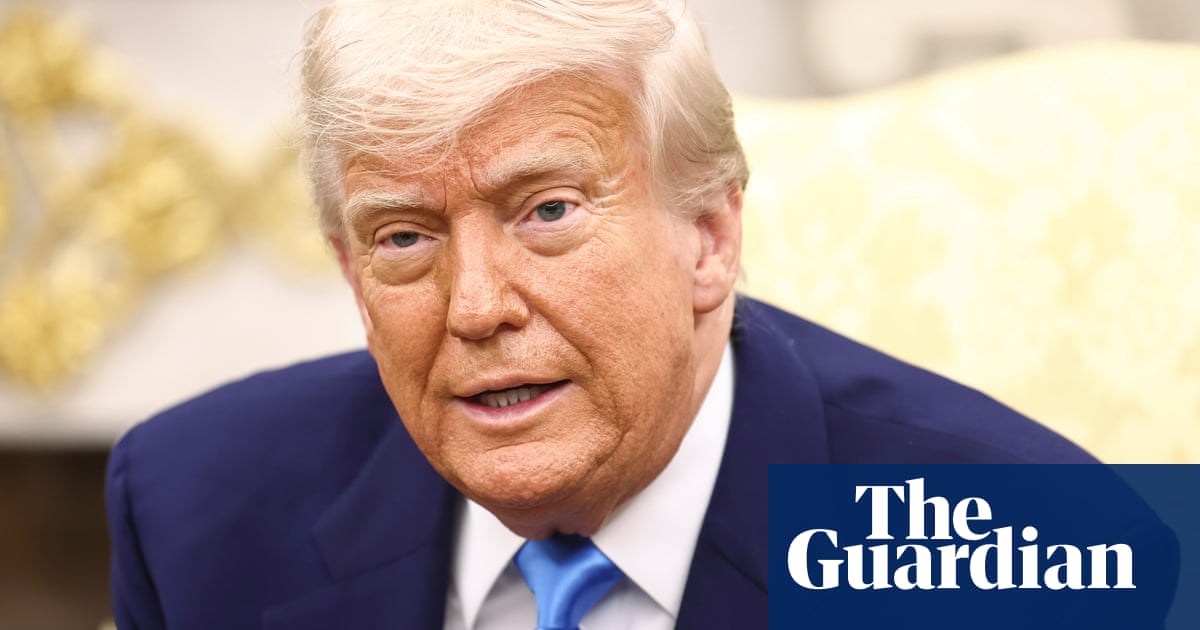Donald Trumpwill host the top holders of hiscryptocurrencyat a gala tonight at his private golf club near Washington DC. Though the president has called the $Trump token “The Greatest of them all!!!!!!!!!!!!!!!!”, nearly half the gala’s guests suffered losses from purchasing it, according to a Guardian analysis of their public cryptocurrency wallets.
The attendees are winners of the US president’smeme coincompetition. Last month, Trump announced that the 220 crypto wallets with the largest holdings of $Trump between 23 April and 12 May would win a ticket to a private dinner at the Trump National golf club. The top 25 holders would also be invited to a “Private VIP Reception” with the president beforehand. The news caused the coin tospikemore than 50%.
Buyers were ranked by their “time-weighted” holdings, which reached 11.3m coins – worth approximately $148m in total as of 12 May. Snapping up the coin propelled entrants to the top of the leaderboard. However, the Guardian’s analysis of crypto wallets on the Solana blockchain suggests that many have been burned along the way.
Of the 220 winners, 95 – some 43% – have suffered a net loss from purchasing $Trump since the coin’s January launch, a combined $8.95m, according to trading history and portfolios as of 21 May.
A contestant under the username “GAnt” appears to have endured the biggest losses. Despite placing fourth on the leaderboard, buying the tokens has led to a $1.06m shortfall. Similarly, user “Meow” is down $621,000, despite achieving VIP status.
This aligns with a broader trend: it’s believed that 764,000 wallets – mostly belonging to small holders – have lost money on $Trump, according to data from the cryptocurrency and blockchain analysis firm Chainalysis. Meanwhile, just 58 wallets have made more than $10m each on their purchases of the coin, per Chainalysis. The cryptocurrency is trading 68% below its all-time high when it peakedthe day before the president’s inauguration.
About 40% of the gala attendees own less than one $Trump token. Among them are buyers who purchased the coin during its initial days of hype and then dumped it when the price hit its zenith. User “UVIL”, for example, profited more than $7m from the president’s coin, followed by “boop” and “Woo”, both earning more than $2m, respectively, according to the Guardian’s analysis. Dinner ticket winners shelled out between $55,000 and $37.7m to attend, with the price of one seat averaging out to $1m,according to datafrom the blockchain analytics company Nansen published by NBC.
Attendees are thus not necessarily current owners of the Trump coins, but “people who pumped and dumped them”, said James Angel, a professor of financial regulation at Georgetown University. “It just shows that, when you elect a clown, you get a circus.”
The Guardian’s calculations assume transfers in and out of wallets were sales at market prices from the time, although this is not possible to prove for all transactions.
The Trump administration is not directly involved in administering $Trump. However, the president may profit from token sales and trading fees. Trump-affiliated entities – notably CIC Digital LLC and Fight Fight Fight LLC – issued the coin and own 80% of its supply, which will be gradually unlocked throughout his term. These entities also made $320m in trading fees as of 6 May, according to data from Chainalysis,publishedby CNBC.
The Trump Organization did not immediately respond to a request for comment.
The president lauding high-risk and opaque assets coincides with a wider easing of financial regulation. Until recently, the Securities and Exchange Commission viewed most cryptocurrencies as securities, not commodities. However, under new leadership, the regulator issuedguidancestating that meme coins are “akin to collectibles” and thus “neither meme coin purchasers nor holders are protected by the federal securities laws.” On that view, $Trump sales are not subject to the same disclosures required of stocks or bonds, nor would the president’s affiliates be considered unregistered issuers of securities.
Sign up toTechScape
A weekly dive in to how technology is shaping our lives
after newsletter promotion
Despite the SEC’s view, experts say the unique conditions of this particular meme coin may justify securities classification regardless.
Corey Fraye, the director of investor protection for the Consumer Federation of America, a non-profit, believes that $Trump could pass the Howey test – the legal framework used to determine whether a transaction qualifies as an investment contract under securities laws.
“The promotion of these tokens to a reasonable investor would create an expectation of profit related to this entire scheme that they think they’re buying into,” says Fraye.
Moreover, the fact that Trump-affiliated entities own the majority of the supply, combined with the president’s influence over crypto policy, may expose the public to market manipulation and suggest a need for securities law protections, says Angel.
The identities of possible attendees have also raised ethical concerns over the risk of pay-to-play policymaking. Topping the leaderboard is Justin Sun, a Chinese-born crypto billionaire who founded the Tron blockchain. Sun waschargedin 2023 with market manipulation and offering unregistered securities, but the SECdroppedthe case in February.
Companies with strategic policy incentives have also spent heavily to reach Trump. A cross-border logistics firm called Freight Technologies bought $20m worth of tokens, calling it “an effective way to advocate for fair, balanced, and free trade between Mexico and the US”, according to astatement. Adding to that is GD Culture Group, a small tech company that operates an e-commerce business on TikTok. GD, which has a Chinese subsidiary, announced announced a plan to purchase up to $300m worth of $Trump, the New York Timesreported, but did not specify whether that spending had begun.
“The coin definitely benefits the Trump family business, and it’s yet another way for [the president] to cash in on celebrity,” says Angel. “But the real question is: is this in the best interest of the United States of America?”
